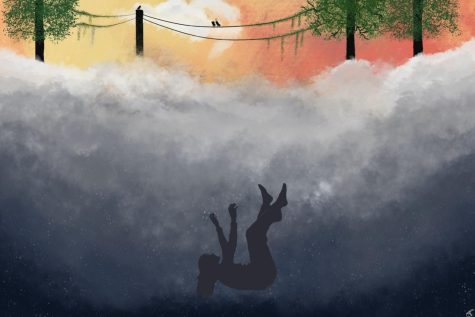SAD is more than the winter blues
Many people struggle with the seasonal depression. This form of depression affects those of all ages, especially teens, even in Milton.
According to Psychology Teacher Ms. Stacey Behnert, seasonal depression is a form of depression that occurs with the change of the season. Though the cause is not fully understood, it is believed to be due to the lack of light that occurs with season change, she added.
The lack of light causes many different symptoms, such as feelings of sadness or down feelings most of the day (nearly every day), loss of interest in regular activities, little to no energy, sluggish feeling, problems with little or excessive amounts of sleep, difficulty concentrating, hopeless and/or worthless feelings or in extreme cases individuals may not feel like living, said Ms. Behnert. She added, some cases may cause symptoms that are not associated with emotions, such as cravings for carbohydrates like bread and pasta, which results in weight gain in an individual because of overeating.
According to Ms. Behnert, some of the symptoms, such as low energy, feeling sluggish and difficulty concentrating take a toll on a student’s academic standing and performance.
The lack of sunlight is thought to affect how the hypothalamus works, according to The United Kingdom National Health Service (NHS UK).
Seasonal depression is usually diagnosed by a healthcare professional, since those who experience symptoms recognize something is wrong, added Ms. Behnert. Though, the diagnosis of seasonal depression, which is medically known as Seasonal Affective Disorder (S.A.D.), or “winter depression,” is not usually diagnosed in the course of one year, she said.
NHS UK suggests seeing a general practitioner (somebody who can help assist you on your mental health and mood with the changing seasons) if you think you may be struggling with S.A.D. to help cope.
Mrs. Behnert added other forms of treatment may include phototherapy (a type of light that the patient will sit in front of to make up for the loss of direct sunlight exposure), antidepressants and specific changes in life style such as exercising.
Though most of the patients who experience S.A.D. experience symptoms during the winter some may experience symptoms during the summer and feel better during the winter, according to NHS UK.
If you feel as if you may be experiencing symptoms of S.A.D., contact a healthcare professional. 

Hi! My name is Shalynn Mathias and I am currently a junior. I am a part of both NHS (National Honors Society) and SHS (Spanish Honors Society). I enjoy...


